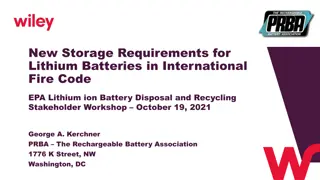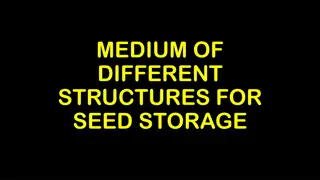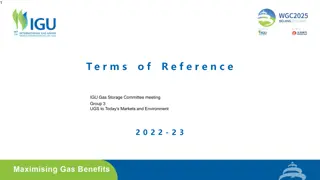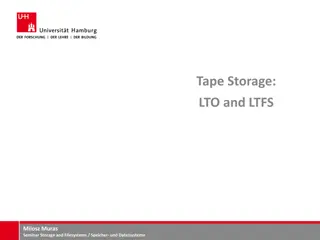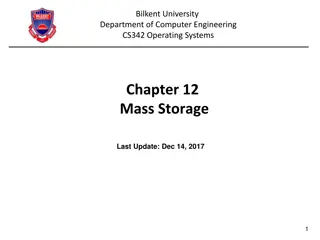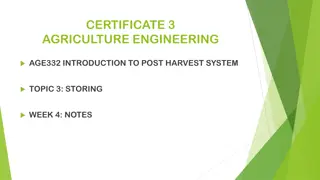
Auditing Guidelines for Herbal Cosmetics Storage and Production Areas
Explore the importance of auditing storage and production areas in herbal cosmetics industries to ensure quality, safety, and regulatory compliance. Learn about production area audits, storage area checklist, and key considerations for maintaining standards.
Download Presentation

Please find below an Image/Link to download the presentation.
The content on the website is provided AS IS for your information and personal use only. It may not be sold, licensed, or shared on other websites without obtaining consent from the author. If you encounter any issues during the download, it is possible that the publisher has removed the file from their server.
You are allowed to download the files provided on this website for personal or commercial use, subject to the condition that they are used lawfully. All files are the property of their respective owners.
The content on the website is provided AS IS for your information and personal use only. It may not be sold, licensed, or shared on other websites without obtaining consent from the author.
E N D
Presentation Transcript
Auditing of Storage and Production Area of Herbal Cosmetics Industries Facilitator: Dr. Sagarika Parida Assoc. Professor Dept. of Botany School ofApplied Sciences Centurion University 1
Introduction Herbal cosmetics are becoming increasingly popular due to their natural and eco-friendly appeal As with any cosmetic product, proper storage and production areas are crucial to ensure safety, quality, and regulatory compliance This presentation will provide an overview of the auditing process for storage and production areas of herbal cosmetics.
Importance of Production Area Auditing The production area is where herbal cosmetics are formulated and manufactured, making it a critical area for auditing Proper production area audits ensure that good manufacturing practices (GMPs) are followed to ensure quality, safety, and regulatory compliance Factors such as cleanliness, equipment maintenance, personnel hygiene, and documentation should be assessed during production area auditing. 3
Storage Area Audit Checklist Temperature and humidity monitoring: Are the storage areas equipped with temperature and humidity controls and monitoring devices? Are they calibrated and functioning properly? Lighting: Is there adequate lighting to prevent spoilage or degradation of herbal cosmetics? Are UV filters in place to protect from sunlight exposure? Ventilation: Is there proper air circulation and ventilation to prevent the buildup of odors or contaminants? 4
Storage Area Audit Checklist.. Contd Pest control: Are proper measures in place to prevent pest infestation, such as regular pest control treatments and proper storage of herbal ingredients and finished products? Inventory management: Is there a system in place to track and manage inventory to prevent stockouts or overstocking? 5
Importance of Production Area Auditing The production area is where herbal cosmetics are formulated and manufactured, making it a critical area for auditing Proper production area audits ensure that good manufacturing practices (GMPs) are followed to ensure quality, safety, and regulatory compliance Factors such as cleanliness, equipment maintenance, personnel hygiene, and documentation should be assessed during production area auditing. 6
Production Area Audit Checklist Cleanliness: Is the production area clean and well-maintained? Are there proper procedures and protocols for cleaning and sanitizing the production area and equipment? Equipment maintenance: Are the production equipment properly maintained, calibrated, and validated? Are there procedures in place for equipment cleaning, maintenance, and breakdown management? 8
Production Area Audit Checklist..Contd Personnel hygiene: Are the production personnel trained in proper hygiene practices, such as hand washing, wearing appropriate clothing, and avoiding cross-contamination? Are there protocols in place for personnel health checks and monitoring? Documentation: Is there proper documentation of production processes, including batch records, standard operating procedures (SOPs), and quality control records? Are these documents regularly reviewed and updated? 9
Conclusion Auditing of storage and production areas is essential for maintaining the quality, safety, and regulatory compliance of herbal cosmetics Regular audits help identify and address any issues or non- compliance, ensuring that herbal cosmetics meet the highest standards By adhering to good storage and production practices, manufacturers can ensure that their herbal cosmetics are safe, effective, and of the highest quality. 1 0





